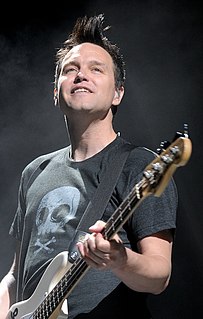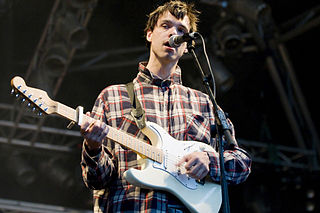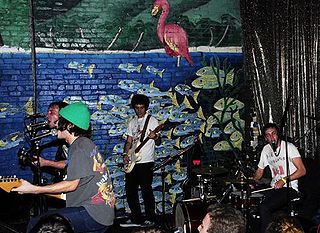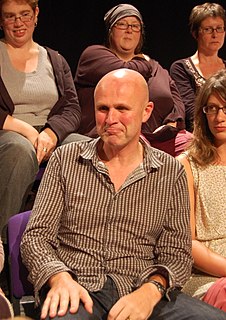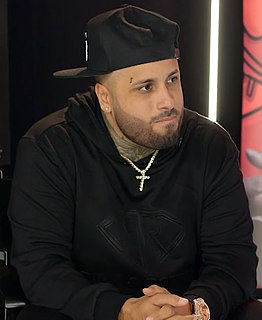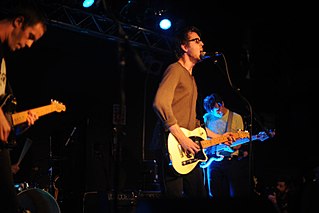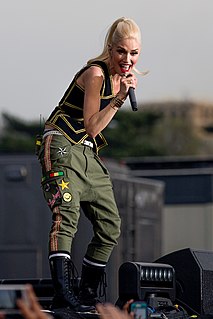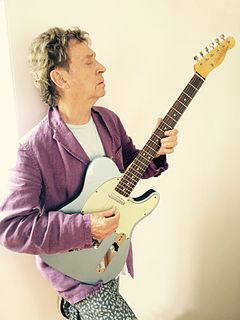A Quote by Andy Biersack
The image of the band has always been something that's evolved or changed with every record cycle that we've done. I think, in a lot of respects, that's because we were so interested in having a visual representation for the music that we were making.
Related Quotes
I think I gave indications early on that mine wasn't just going to be a commercial, er, career. If that were the case, then the first record would have been 10 versions of 'Loser.' I always thought it would be interesting if there was no such thing as gold and platinum records, or record deals, and people were just making music. What would the music sound like?
In the early eighties, there were a lot of artists involved with the music scene. All those young artists, before their careers took off, were into music. Robert Longo used to play some guitar. He had a band for a while. Basquiat had a band. I mean, people were always trying to mix music and art - in fact, I'm guilty of it myself.
We've always done things the way we wanted to. It's true that our experience affects some of our decision making, but that's a part of growing up and evolving as a band and as people. The first five or six years were really rough. We had no money. We were lost and crazy and made mistakes, but we learned a lot and suffered through tough times, and I think what we did reflected where we were and who we are.
I know I certainly wouldn't be writing books if it hadn't been for the feminist blogosphere, and I think that's a really amazing thing. And just the sheer power of outreach I think is incredible. It used to be that if someone was to get involved in feminism, it was probably because they were already interested. They were already interested in feminism; they were already interested in being an activist, and they found their way to like a NOW meeting or to a consciousness-raising group or something like that.
My favourite stuff is visual, and I always want to work with visual artwork. I think it depends on the person, but for me, photographs of an image of something interesting or inspiring is worth a lot more than words to me. I think every concept I've come up with and turned into films or that will be hopefully become a film comes from images first.
We are a band that stylistically crosses a lot of barriers and generational gaps. The heavier portion of the band, the modern music elements, the visual part of the band appeal to a younger audience. For an older audience, we have chops and great songs that are reminiscent of the things that were great about rock and roll when they enjoyed it. We're the kind of band that can cross those lines.
What interested me in film was the image-making aspect of it. So, I went to school in cinematography. I was really convinced that image was what I wanted to do, and I think it came from the fact that I lived in a small town my whole life, but my mother was very interested in painting, so she would bring us to Paris for two weeks. So, we're going to the Louvre and to the museums and to see shows. In the evening we were seeing theater. Painting is basically what led me. I think the image was key.
Commercial record has never interested me. It's amazing I was in a band like The Police that had such phenomenal commercial success. Part of what made The Police what it was was that we didn't all come in with obvious mainstream musical tastes. We were a rock band and somehow we had to make rock music, but it was informed by a lot of things outside of the mainstream for sure.
I think my music being referred to as "cinematic" has a lot to do with people just not being used to listening to instrumental music without watching a film. I'm still pretty convinced of that. You'll play Chopin in place of something average and like, "Wow, that'd be great in a film." People say it every time, swear to God. I don't think people have a good relationship with instruments and music anymore. But it's definitely visual; I started writing with this band because of the pictures. I can't really deny it either, you know?


